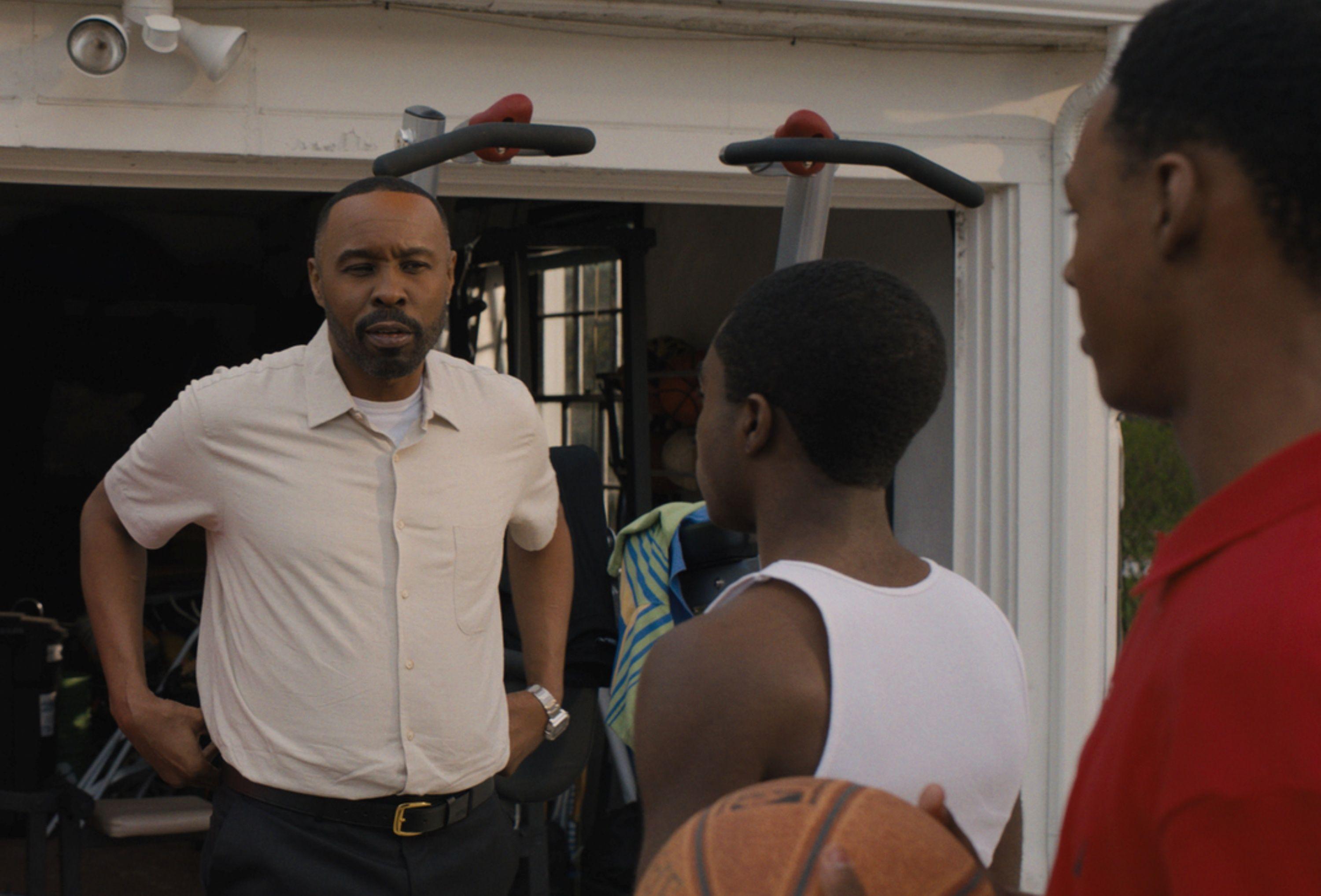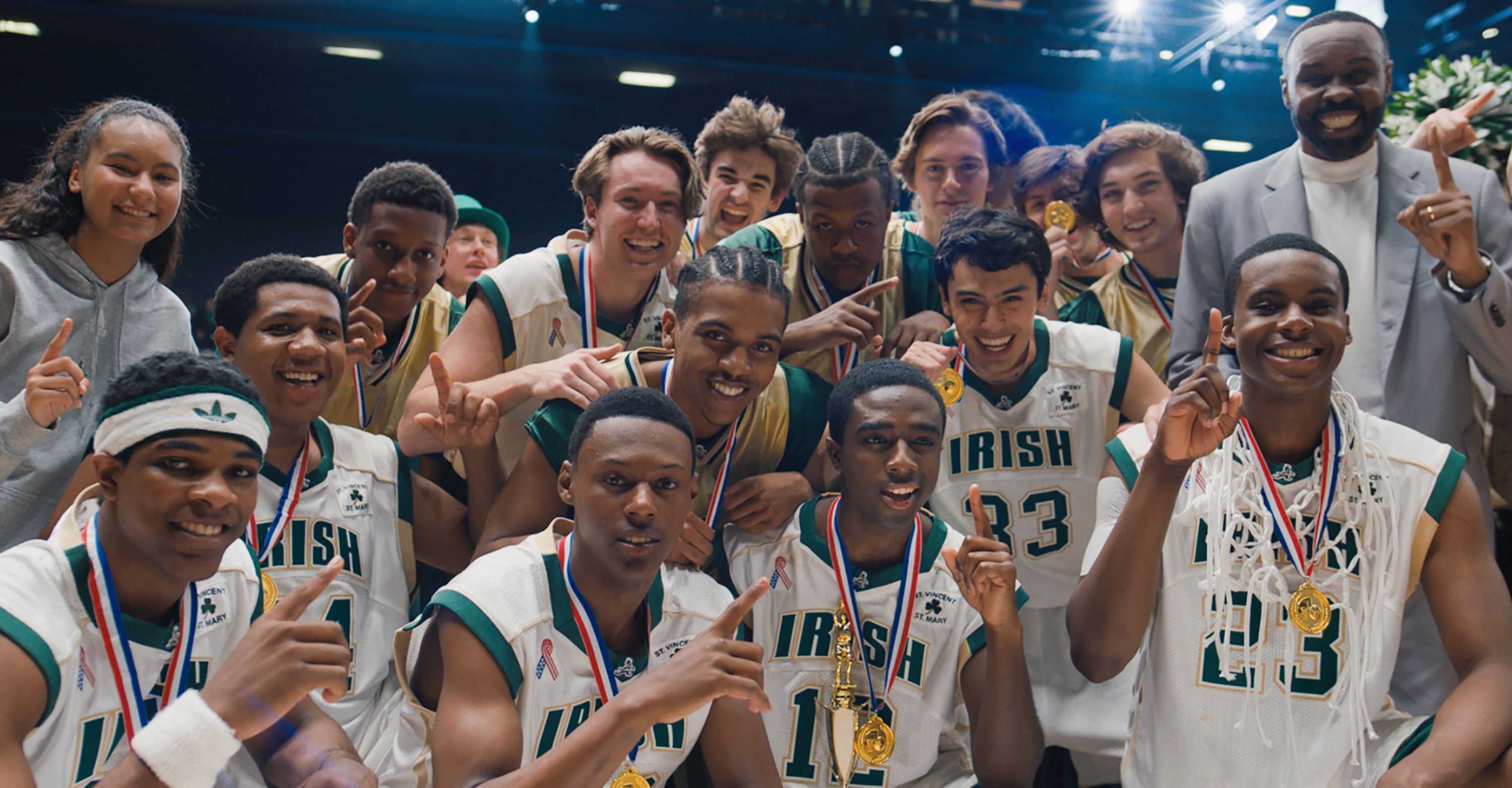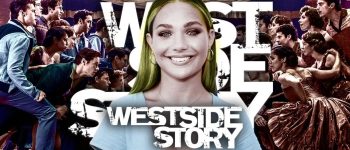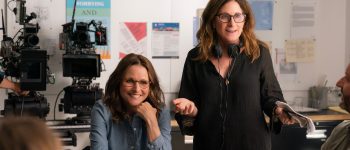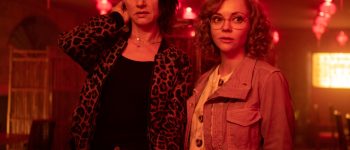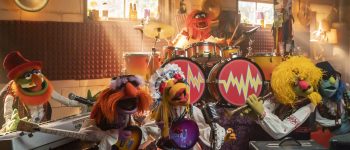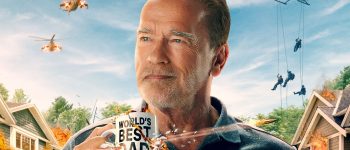Shooting Stars, from director Chris Robinson and based on the book by LeBron James and Buzz Bissinger, tells the inspiring story of how a young LeBron James (Marquis “Mookie” Cook) and his childhood best friends Lil Dru (Caleb McLaughlin), Willie McGee (Avery “AJ” Wills Jr.) and Sian Cotton (Khalil Everage) turned a love of basketball into a life-changing opportunity for themselves and their families. Becoming the #1 high school team in the country would lead to the launch of James’ career as one of the biggest superstars in the NBA, and a lifelong connection that would turn friends into family.
- ‘Fatal Attraction’ Season 1: Yes, Toby Huss, Reno Wilson & Brian Goodman Were Also Shocked at That Killer Reveal
- Daniela Melchior on the Reality of Breaking Out in Hollywood via ‘The Suicide Squad’
- ‘Star Trek: Strange New World’ Season 2’s Showrunners on Setting the Tone for the ‘Lower Decks’ Crossover
- Sydney Sweeney on ‘Reality’ and Humanizing the Person Behind the Headlines
- ‘What We Do in the Shadows’ Season 5 Director Digs Into the Behind-the-Scenes of Guillermo’s Sticky Blood Bath
During this 1-on-1 interview with Collider, Wood Harris (who plays Big Dru, the father of Lil Dru and coach to the Fab Four, which evolved into the Fab Five) talked about why this project appealed to him, what he likes about working with Robinson, what draws audiences to sports dramas, the fun of shooting the basketball scenes, how often they played their own games on set, and how exploring the father-son relationship made him reflect on his own life.
Collider: When this came your way, what was it that most interested and intrigued you about this story and made you want to play this character? On the surface, it’s a story about LeBron James, but there are so many layers to it.
WOOD HARRIS: You’re right, it’s LeBron James, so you consider it straight away. Honestly, he’s a historical figure, I’d say. But then, when I read it and saw what was needed of me, in the role of Big Dru, or Coach Dru, how could I not do it? It was a great opportunity to work again with people I had worked with before, like Caleb [McLaughlin]. We did the New Addition biopic together, with Chris [Robinson], who directed that. So, it was a bit of a reunion. With all of that, it didn’t take a lot of consideration, to be honest with you.
What do you like about Chris Robinson, as a director? Having worked with him before, did you notice any differences, this time around? Is he still the same director that he was, the first time you worked with him?
HARRIS: I don’t know if he’s the same. Both times, we worked with younger people, and both times, I was the anchor to the young group of kids. When we worked on the first thing we did, I was essentially their coach. I was their manager and I took care of early New Edition’s lives. And this one is very much the same, in that sense. What I like about him is his temperament. A director gives the set it’s temperament. If you have an angry director, or a playful director, or one who plays too much, or is someone who comes on the set, maybe disappointed about something in their regular life, the set sponges that up. That’s the one consistent thing about Chris. He’s very consistent with his temperament. He’s also very knowing of how to execute his vision. Some directors sometimes don’t really have that grasped solidly, so your 12-hour day is them figuring things out a lot. There wasn’t a lot of that. Chris would come in with ideas. Although he was flexible to a new, better idea, he still came equipped with his idea and his vision, and we pursued that. I think he used some of the same people from the biopic that we did before. Chris is also epic in his ideas. He’s an epic filmmaker. These projects could look a lot smaller, but Chris and his team make epic projects. So, I love working with Chris. I can’t wait to work with him again, and Caleb, and all of these guys. They were fun to work with, easy to work with, and smart. I could go on and on.
You’ve done your fair share of roles in sports dramas, even though they’ve all been very different. What do you think it is about sports stories that helps them succeed and sustain throughout cinema? It’s definitely a genre that never gets old, so where do you think this one fits within that, overall?
HARRIS: I think sports films and television projects are successful a lot of times because inherent in a sport is someone against someone, so there’s already conflict. Your story already has built-in conflict. If you watch sports, like the NBA, every game you watch is theater. Somebody’s gonna win, and somebody’s gonna lose. There’s gonna be a triumphant person with victory, and someone defeated and feeling low and down. That’s inherent in sports stories. Also, because of that, you maybe have an underdog. In the case of Shooting Stars, you have a sensational human being in LeBron James, who we watch evolve from a regular place. LeBron is larger than life now, but it’s good to see and not just hear about him being a Saturday morning friend, who ate cereal and talked about cartoons. He was just a very relatable person. In the case of Shooting Stars, it’s a biopic, so it’s a true story. We know LeBron now, so it’s very important to see what he was like when he was 17. He’s been a mega person since he was basically 16 or 17.
And it’s wild that he’s still out there doing it and we can still watch him.
HARRIS: I was rooting for him. I wanted him to get another chip this year. Maybe next year.
As a coach on the sidelines of the basketball scenes, what was it like to shoot those moments? What most impressed you about how the basketball games were handled?
HARRIS: I was an observer, but there was a camera on me, so I had to be genuine in my reactions, even if what they were doing on the court, they’d already done five or six times. Professionalism comes into play because you have to be genuine to the task and also authentic to the acting moment. What I like about those scenes is that I’m watching sports. I’m a big sports person, so it’s just fun to watch sports. And I also know, when they say, “Cut!,” I’m gonna go on the court and shoot the ball, so I’m ready. I’m just having fun the whole day, for the most part.
Did you guys have a lot of games, when the cameras weren’t rolling?
HARRIS: Oh, yeah, we played every day.
What was it like to get to explore that father-son relationship? Yes, he probably looked at all these young men as his kids, but one of them was really his son, which can definitely add a level of tension. What was it like to get to explore that dynamic with Caleb McLaughlin?
HARRIS: That made me a little introspective of my own son, who I’ve also coached before. I realized that maybe I wasn’t as fair to my own son. In the moment, you just might not gauge it that way. As Coach Dru, it was a little different because you’re dealing with someone where, in LeBron James, where sensationalism is involved. When you see someone much better than your child, in a sport or even in academics, and you’re sitting next to somebody getting As while you’re getting Bs, the parent will think, “Why don’t you get As?,” or “Why aren’t you better at sports? I’ve taught you everything I know and you train every day, but this kid next to you doesn’t train like you and doesn’t have a father like me, but he’s gifted.” You wanna push your kid. You stop being a father, in a sense, and you start being more of a coach. Finding that balance is really what’s necessary. I hope, in the film, I portray him to find some balance.
Shooting Stars is available to stream at Peacock.
Source: https://dominioncinemas.net
Category: INTERVIEWS
